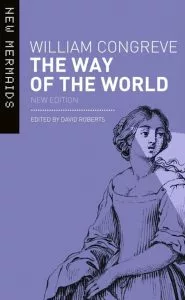“A Supermarket in California” by Allen Ginsberg: Critical Analysis [1956]
!["A Supermarket in California" by Allen Ginsberg: Critical Analysis [1956] a supermarket in california Allen Ginsberg](/wp-content/uploads/2021/07/B612_20210706_232613_901.jpg)
Written by the renowned American poet Allen Ginsberg in 1956, the prose poem “A Supermarket in California” is an extensive exploration of the socio-politico-cultural changes that came in the American politics from the 1850s to the 1950s, from Walt Whitman’s poetic descriptions to the current reality of America as aftermaths of the excruciating World-Wars and Industrial Revolution. Through the perfect usage of language and vivid imageries, Ginsberg criticized the ultra-modern American consumerist culture, socio-cultural traditionalism and thereby, urged the nationals to rejuvenate and resurrect the ideals submerged under the majestic sweep of American history. According to Nick Selby’s essay “Queer Shoulders to the Wheel: Whitman, Ginsberg, and a Bisexual Poetics”, the major themes of the poem are- “Capitalism vs. Communism, American vs. Un-American, Counterculture vs. Culture, Heterosexuality vs. Homosexuality.”
Through this article, I attempt to offer you a short critical analysis of the poem “A Supermarket in California” by discussing context and symbols in the poem and also, bring a comparison of Ginsberg’s & Whitman’s vision of America by analyzing their poems “A Supermarket in California” and “Song of Myself” respectively.
In ‘A Supermarket in California’, Ginsberg uses himself and Walt Whitman as distinct characters to manifest the dynamic phases and aspects of the American social matrix where the latter captures America as a land of technological advancement, democratic principles governed with love, benevolence and kindness; and the former views America that is devoid of such egalitarian values and lacks compassion, candor, sympathy and mutual respect for other fellow countrymen.
What thoughts I have of you tonight, Walt Whitman, for I walked down the sidestreets under the trees with a headache self-conscious looking at the full moon.
In my hungry fatigue, and shopping for images, I went into the neon fruit supermarket, dreaming of your enumerations!
What peaches and what penumbras! Whole families shopping at night! Aisles are full of husbands! Wives in the avocados, babies in the tomatoes!—and you, Garcia Lorca, what were you doing down by the watermelons?
In the first stanza, the self-conscious Ginsberg in his hungry fatigue is walking on side streets in the neon-fruit super-market, “shopping for images” and ” dreaming of the enumerations” of humanitarian America as described by Whitman in his poetry but he is incapable to locate anything worth watching. He finds–‘the neon-fruit super market’ where the people are purchasing goods by exercising their rights of freedom but further enslaving themselves into a system functioning for demonstrating superiority through money power. He suggests that Americans had started correlating happiness with money-power and now, lacks the moral qualities that it once possessed. He indicates how the natural objects are substituted by the fancy market products and moonlight by the pseudo-radiance of the supermarket. The poet illustrates that the brightness of the supermarket products has a hypnotic effect on families, they don’t pay attention to each other anymore and tantalized and illusioned by shiny products as represented through the images of “Aisles are full of husbands”, ” Wifes in the avocadoes” and “Babies in the tomatoes.” Hereafter, Ginsberg notices the Spanish poet Garcia Lorca with watermelon in his hands and through the reference of Whitman and Garcia Lorca, according to Bill Morgan, Ginsberg is confessing “a self-imposed repression of his innate queerness.“
I saw you, Walt Whitman, childless, lonely old grubber, poking among the meats in the refrigerator and eyeing the grocery boys.
I heard you asking questions of each: Who killed the pork chops? What price bananas? Are you my Angel?
I wandered in and out of the brilliant stacks of cans following you and followed in my imagination by the store detective.
We strode down the open corridors together in our solitary fancy tasting artichokes, possessing every frozen delicacy, and never passing the cashier.
The poem has homoerotic overtones in the second stanza where the childless, lonely Walt Whitman is “poking among the meats” and “eyeing the grocery boys” in pursuit of a sexual encounter. Through this idea, Ginsberg explored his homoerotic emotions of love and represented Supermarket as a place to escape social conventions and traditionalism but realistically, it’s the opposite and not possible. Here, the central elements of Beat culture and Beat Generation Literary Movement of 1950 resonate in this poem, like the rejection of standard narrative values, making a spiritual quest, the exploration of American and Eastern religions, the rejection of economic materialism, explicit portrayals of the human condition, experimentation with psychedelic drugs, and sexual liberation and exploration.
Where are we going, Walt Whitman? The doors close in an hour. Which way does your beard point tonight?
(I touch your book and dream of our odyssey in the supermarket and feel absurd.)
Will we walk all night through solitary streets? The trees add shade to shade, lights out in the houses, we’ll both be lonely.
Will we stroll dreaming of the lost America of love past blue automobiles in driveways, home to our silent cottage?
Ah, dear father, graybeard, lonely old courage-teacher, what America did you have when Charon quit poling his ferry and you got out on a smoking bank and stood watching the boat disappear on the black waters of Lethe?
In the concluding stanza, Ginsberg intensified the problematic aspects of ultra-modern consumerist American culture by posing the question- “what America did you have when Charon quit poling his ferry and you got out on a smoking bank and stood watching the boat disappear on the black waters of Lethe?” Here, he referenced two mythic characters- Charon, the ferrymen who lead dead to the river Styx and Lethe, whoever drinks water from this river will suffer amnesia and thereby reflected how mainstream people have completely forgotten the traditional family values, compassion, kindness [signified through Charon] after diving into Lethe.
Ginsberg Symbolism of “SUPERMARKET”: Ginsberg’s Supermarket symbolizes the place of ultra-modernity and consumerist principles that is devoid of humanitarian values of love which were deeply entrenched in Whitman’s time. “Neon fruit Supermarket’ and the “brilliant stack of cans” reflect the brightness and glamour of modern America but there also arise a sense of alienation and worries [depicted through headache] due to loss of essential ethical values. In addition, Ginsberg and homosexual figures like Walt Whitman and Garcia Lorca have to conceal their real social identities in supermarkets because of the stigma and revulsion associated with homosexuality.
Comparison of Whitman’s and Ginsberg Vision of America through “Songs of Myself” & ” A Supermarket In California”: In “Songs of Myself”, Whitman constructs an idealized American landscape, imagining the country’s fertile possibilities, where man, woman, and nature participate in a harmonious dialogue of freedom and equality. Blades of grass, the poem’s symbolic democratic foliage, blanket the nation as a “uniform hieroglyphic” providing a spiritual sermon that the receptive poet can then translate for his fellow man. Thereafter a century, Ginsberg’s “A Supermarket in California” tries to confront the real socio-politico-cultural structure of America and finds the absence of harmony and compassion in the American social matrix that Whitman dreamt of. Therefore, Ginsberg urged the American masses to resurrect the emotions of love, compassion and universal brotherhood within themselves and recreate an America which envisages mutual love and brotherhood for each other.
To conclude, Ginsberg’s ” A Supermarket in California” is a strong critique of the ultramodern consumerist culture of America and the forces of urbanization, industrialization and modernization which are weakening the moral and human standards of American masses.
References:
- Ginsberg, Allen, “A Supermarket in California”, 1956
- Selby, Nick, Queer Shoulders to the Wheel: Whitman, Ginsberg, and a Bisexual Poetics
- Morgan, Bill. “I Celebrate Myself: the somewhat private life of Allen Ginsberg”. New York: Penguin Group 2006.






